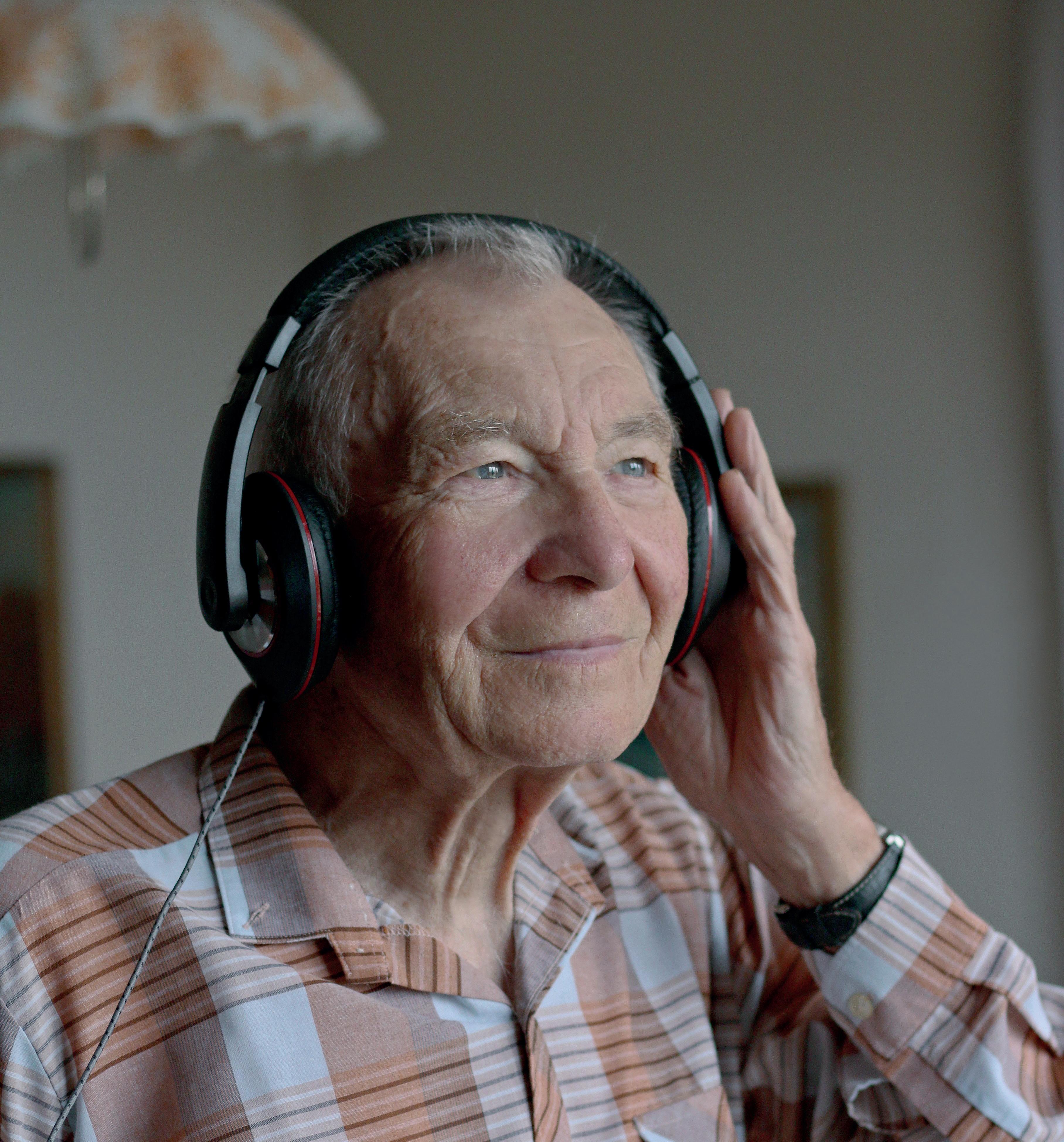
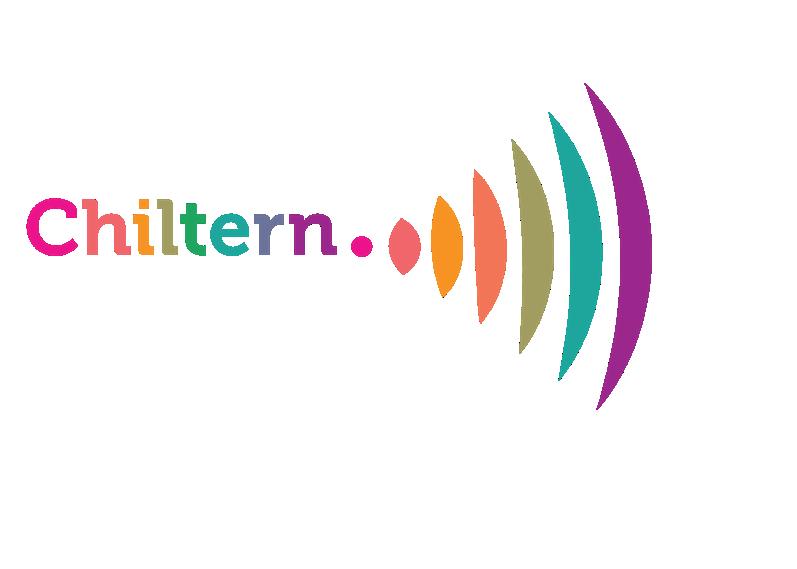
Impact Report 2021-2022
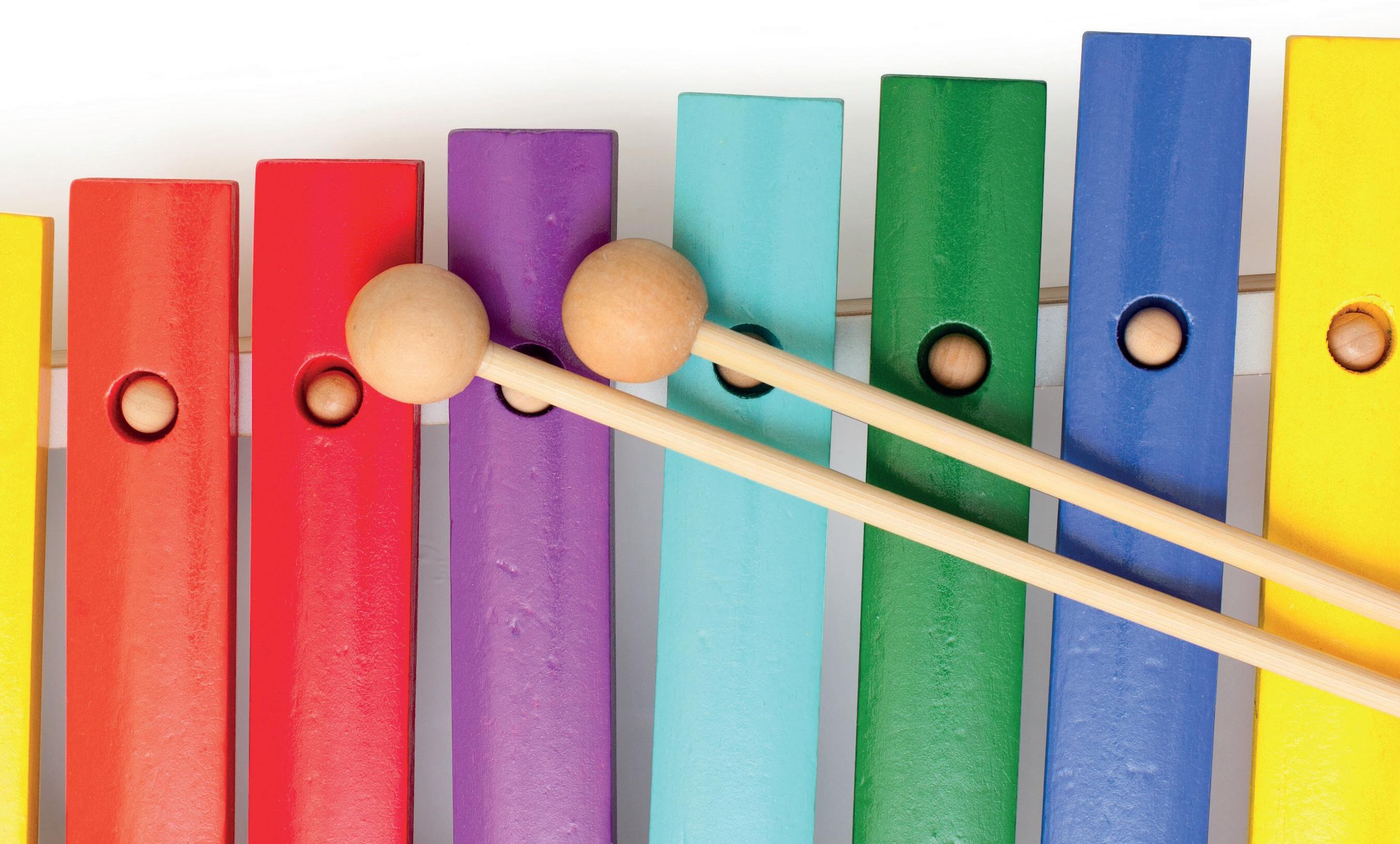
Contents 5 Introduction 6 Acute Care 8 Development and Rehabilitative Care 12 Continuing Care 16 Preventative Care 20 Disseminative Care 2
Thank you for everything you sessions extremely beneficial and have been exploring ways to be able to fund further sessions to maintain a good therapeutic impact. I have really enjoyed working with you and have felt very supported by your sessions. I am also thankful for the joy and laughter we have shared.

3
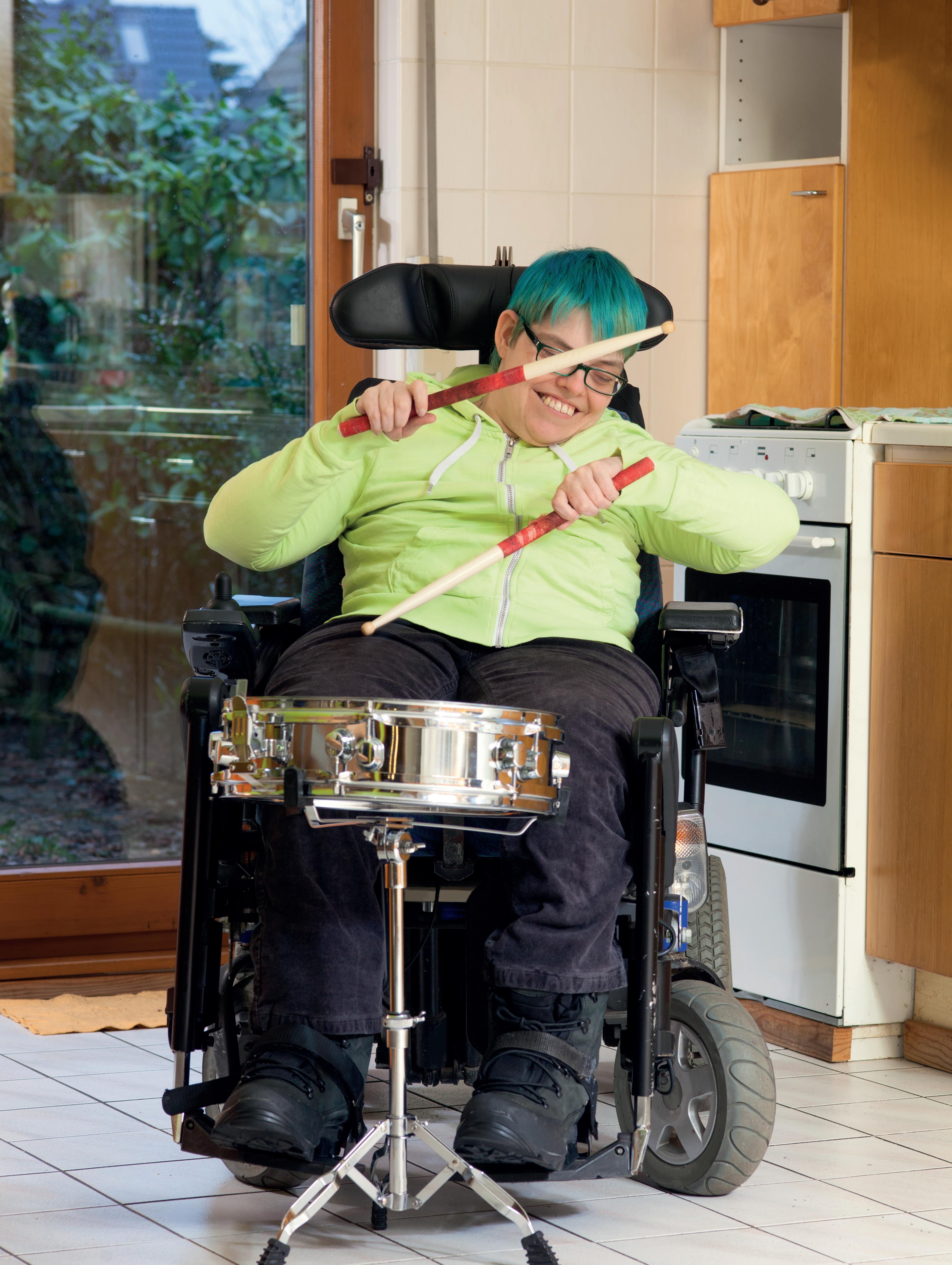
4
Introduction
At Chiltern Music Therapy we strive for a caring world where music therapy is the transformative thread in everyday life.
We provide music therapy, Neurologic Music Therapy® and community music across England to people of all ages and needs.
This report aims to provide an overview of the impact of our work across our Programmes of Care: Acute Care, Developmental and Rehabilitative Care, Continuing Care, Preventative Care and Disseminative Care. We hope you find it informative and interesting to read and welcome any opportunity to discuss our work with you.
Despite the challenges posed by the COVID pandemic, we were able to resume in-person Music Therapy and Community Music sessions for the majority of our clients in 2021-2022. We are continuing to offer digital sessions for those who prefer it or who are unable to leave their home, and with some of our clients we offer a hybrid mix of in-person and virtual sessions. Undoubtedly the flexibility of virtual sessions offers a solution for some clients for a variety of reasons. We anticipate that this will continue to be an important part of the Chiltern offer allowing us to support our clients in the optimal way to meet their needs.
Our Year in Numbers
Here you can see an overview of our impact from August 2021July 2022.
1,828 people were seen by our team
1,230 of those seen were over 18
84% of our sessions were delivered in person
26 counties were covered by our team
51% of our services were delivered in the South East of England
178 music therapy and community music services took place
5
Acute Care
The goal of our Acute Care programme is to provide immediate support to clients during critical times of need, typically within hospital settings.
To illustrate this work we will focus on two specific hospitals. At St Mary’s Hospital Paddington we provide music therapy for infants, children and their families within the Paediatric and Neonatal Intensive Care Units. In the Stroke Unit at Wycombe Hospital we support patients in their recovery after a stroke and before being discharged home or into further rehabilitative care.
St Mary’s Hospital
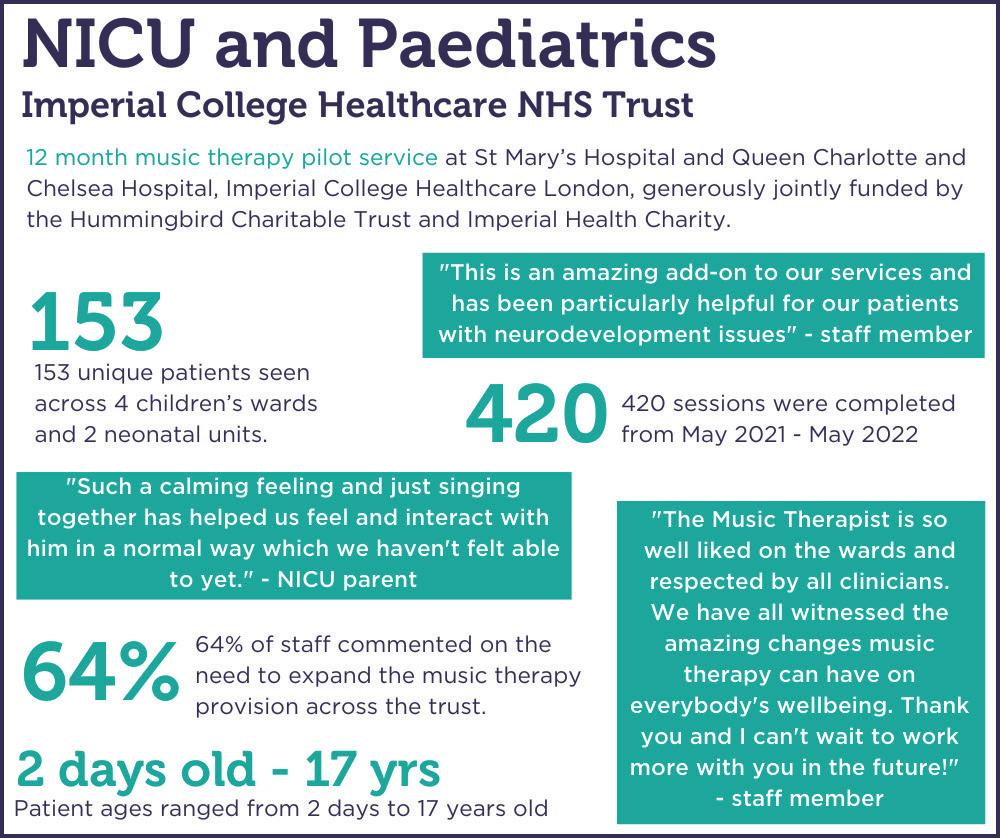
6
Stroke Unit at Wycombe Hospital: Case Study
Music therapy takes place weekly at the Wycombe Stroke Unit on the hyper acute and acute ward.
Occasionally, there are patients who have had a stroke that need a higher level of care. This is a story about a patient receiving treatment in intensive care.
Alex* suffered a stroke and was referred for individual music therapy to help re-orient them after emerging from a lowawareness state due to a medically induced coma. The Music Therapist and Physiotherapist worked together using familiar songs selected by Alex’s partner and live musical instruments which were also played gently on Alex’s body to begin to reintroduce different textures and pressures on their body.
Alex often responded to the music by turning their head towards the Music Therapist, smiling and even occasionally clapping when a song finished. There was also the time when Alex responded to a song with a thumbs down gesture to indicate they were not impressed!
Over time, Alex’s condition worsened and music therapy was paused. When it resumed, the focus of the therapy aims shifted to psychological support to help Alex process and heal from their trauma as they prepared to leave the hospital.
The medical team agree that music therapy will provide Alex with the necessary psychological support and tools for expression to aid in their recovery.
The future remains uncertain for Alex, but with a music therapy treatment plan to take home, their journey will continue to have the benefits of music.
* name changed to protect identity
7
Development & Rehabilitative Care

Our Development and Rehabilitative programme of care focuses on supporting people to maximise their potential, or to support a client’s rehabilitation and recovery after experiencing trauma or injury. This typically involves short to medium term support. A wide range of work falls within this care programme including work within schools and neuro rehabilitation units, and our more recently established community music therapy clinic in Chesham which has been supported by Buckinghamshire County Council.
WORKING WITH NEURO REHAB UNITS
Our Neurologic Music Therapists work across a range of neuro rehabilitation units. In March 2021, Chiltern completed a 12 month pilot Neurologic Music Therapy® (NMT) service with Buckinghamshire Neuro Rehab Unit (BNRU) at Amersham Hospital, which was originally scheduled for one year from August 2019 to August 2020 but was paused from March to November 2020 due to the Covid-19 pandemic. Despite the challenges, the pilot reported positive results.
In partnership with MusAbility, we delivered a 3 month pilot programme at Trafford Intermediate Neuro Rehab Unit (INRU). Our partnership with Musability enables increased access to specialist NMT support across the UK. Data from our use of an aphasia-friendly 1-10 rating scale to monitor patient mood showed that 95% of patients who accessed NMT had improved in mood after sessions. All staff at the unit agreed or strongly agreed that NMT was effective for improving physical function, speech, cognitive skills, mood, and emotional expression for patients and that NMT opened up new ways of working in their therapy disciplines.
"Music is an amazing way to facilitate increased repetitions of exercises that would otherwise feel very repetitive
8
A 12 month pilot, co-funded by Irwin Mitchell and Chiltern Music Therapy, was run by Chiltern’s Neuro Services Lead and Neurologic Music Therapist, Elizabeth Nightingale at the Regional Neurological Rehabilitation Unit (RNRU). The RNRU is a 27-bed rehabilitation unit based at Homerton Hospital in Hackney, London. It is well known for using innovative rehabilitation techniques for patients affected by neurological injury and disease, particularly following traumatic brain injury (TBI).
Elizabeth ran Neurologic Music Therapy® (NMT) sessions for 2 days a week at the unit from March 2021 until the end of April 2022. NMT is an evidence-based, neuroscientific model of music therapy. This approach is based on a neuroscience model of music perception and production and the influence of music on functional changes in non-musical brain and behaviour functions. It is made up of 20 Standardised Clinical Techniques for Sensorimotor Training, Speech/Language Training and Cognitive Training.
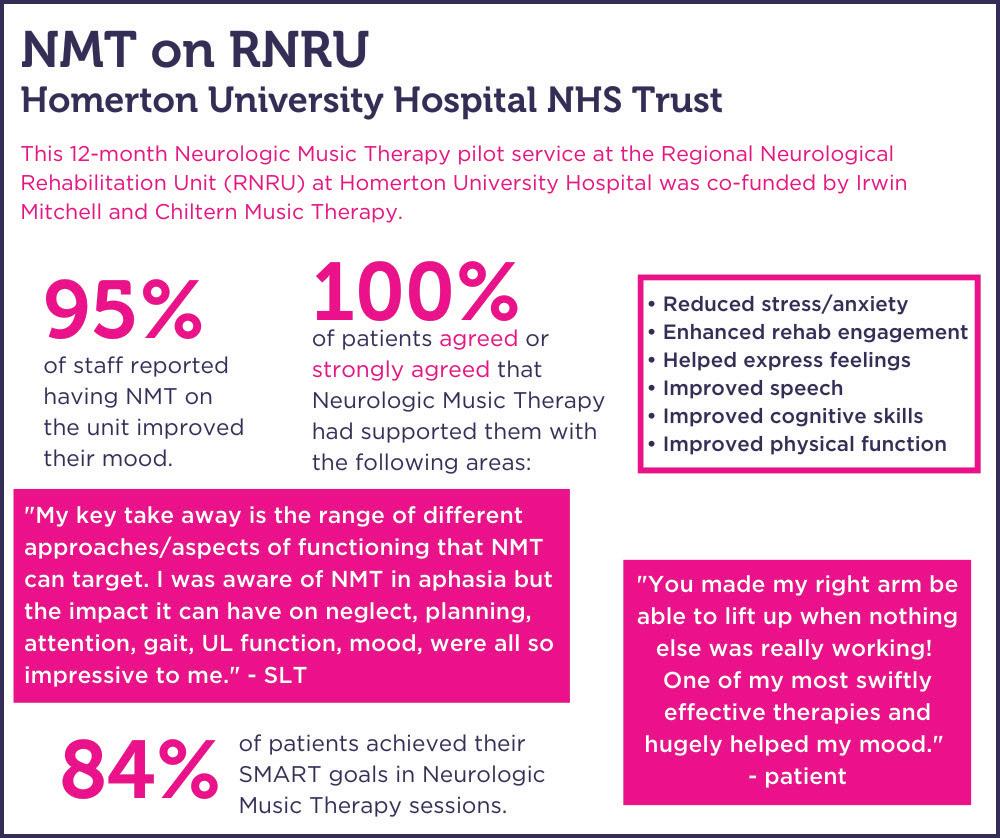
9
WORKING WITH SCHOOLS
Chiltern Music Therapy provided music therapy to 28 schools across mainstream and special needs education within the South East, Midlands, East Anglia and the South West from August 2021 to July 2022. The music therapy services were funded through a combination of sources, including the general school budget, Pupil Premium, Educational Health Care Plans, fundraising, and additional SEN top-up funding. Our schools reported positive results from music therapy, with 92% of schools agreeing that music therapy helps pupils with their developmental goals, 75% observing improvement in pupils’ mental health, and 58% seeing progress in their educational goals.
A Catholic Primary School in Oxfordshire
A group of children were referred for music therapy for various issues such as social/emotional challenges, wellbeing, speech and language delays, memory and recall problems, and low confidence.
Over the 6-week trial, 71% of pupils achieved their therapeutic aims and 29% had continuing aims. The Music Therapy Outcome Star™ assessment tool (see below) was used by the Music Therapist for each pupil at the start and also the end of the 6-week period. The average outcome readings for all pupils accessing music therapy showed an improvement in all areas and school staff reported that music therapy had improved the children’s engagement in class as well as their social communication skills.
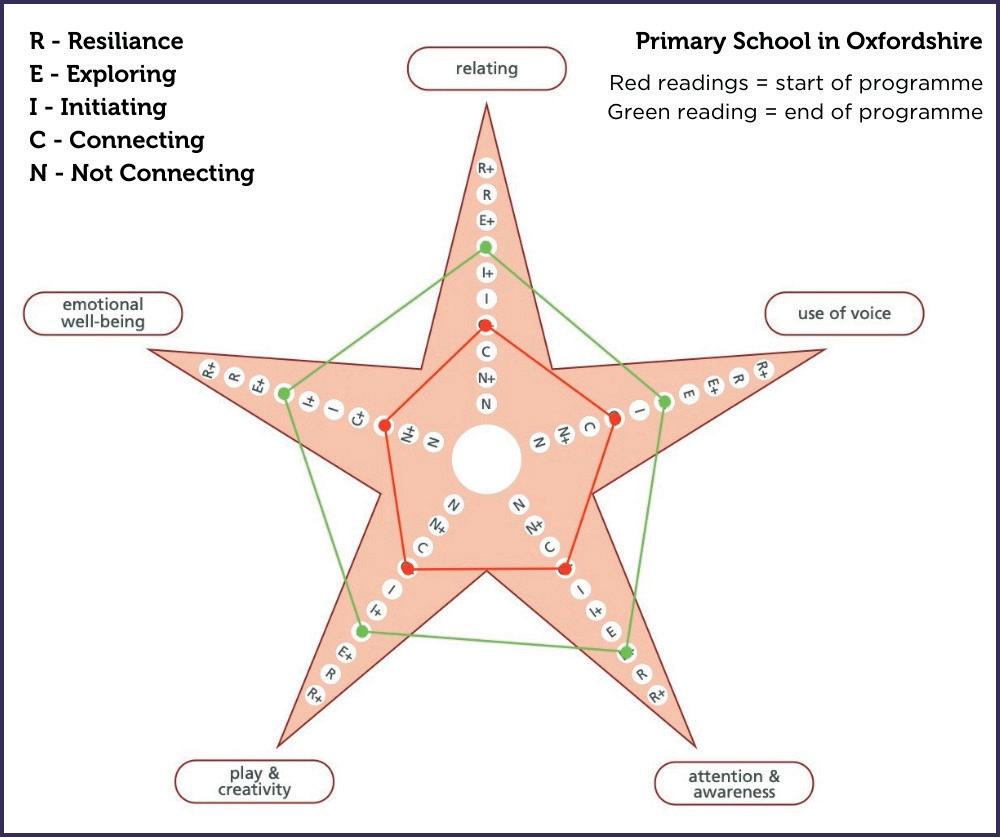
10
A Secondary Special School in Surrey
A total of 24 students were able to access individual and group sessions, ranging from 7-38 weeks of provision. Some students have received longer-term ongoing music therapy. Diagnoses of the children included severe to profound learning disabilities, autism and brain injury.
In order to monitor detailed progress in individual sessions, the Music Therapy Outcome Star™ assessment tool was completed for each pupil at the start and end of their therapy sessions. The results showed a significant improvement across all areas.

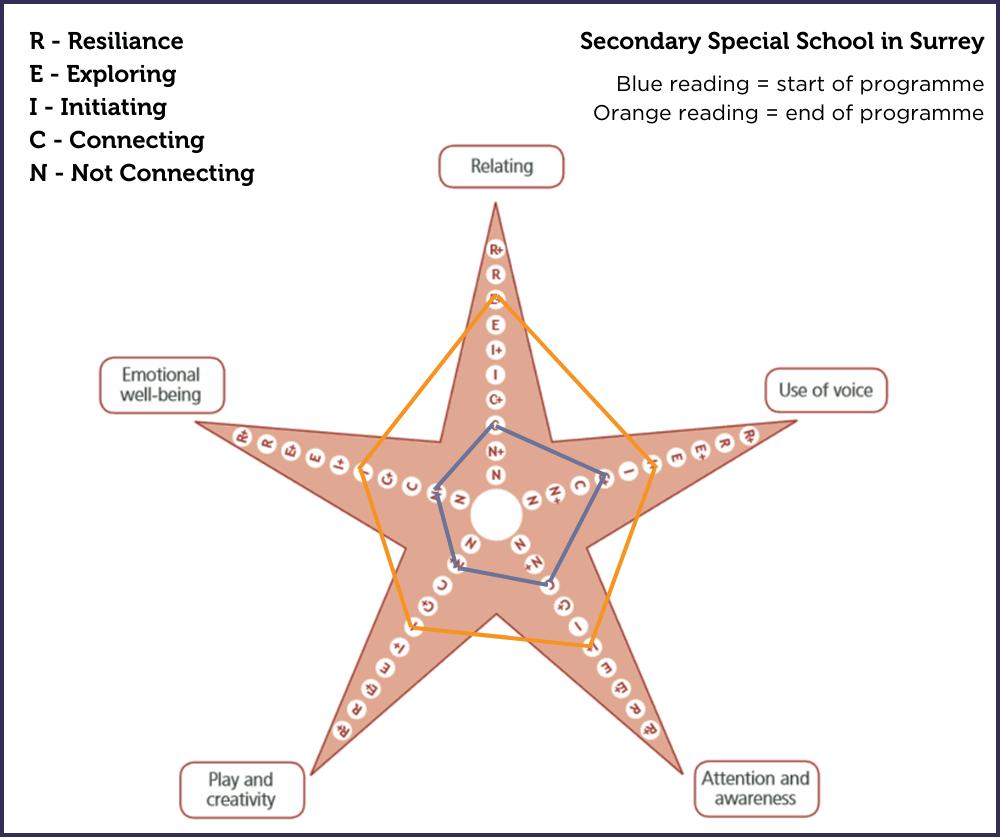
11
“She seems more able to regulate her emotions than she was before she started music therapy, which is having a really positive impact on her work as she is able to focus better, and on her socialisation as she is interacting in more positive Teacher, Surrey Secondary School
Continuing Care
The Continuing Care programme offers support to help people maintain their therapy goals over the medium and long term. A broad range of services and projects fall within this care programme, including our Digital Aphasia Group. This group was created during the COVID-19 pandemic to provide ongoing support for clients who had previously attended our in-person Aphasia group. Due to its success, it has continued online. This allows individuals who have had a stroke and have been discharged into the community to receive vital, effective and motivating therapeutic input with a Neurologic Music Therapist to help them continue and maintain their recovery. Due to the group’s success, sessions have continued after the initial pilot.
The Music Interventions for Dementia and Depression in Elderly Care (MIDDEL) research study is a significant international trial examining the use of music in care homes for older people. The study will include 1000 care home residents in six countries. In the UK, the MIDDEL study is being led by the University of Nottingham and Chiltern is delighted to be delivering the majority of the music therapy sessions in the UK.
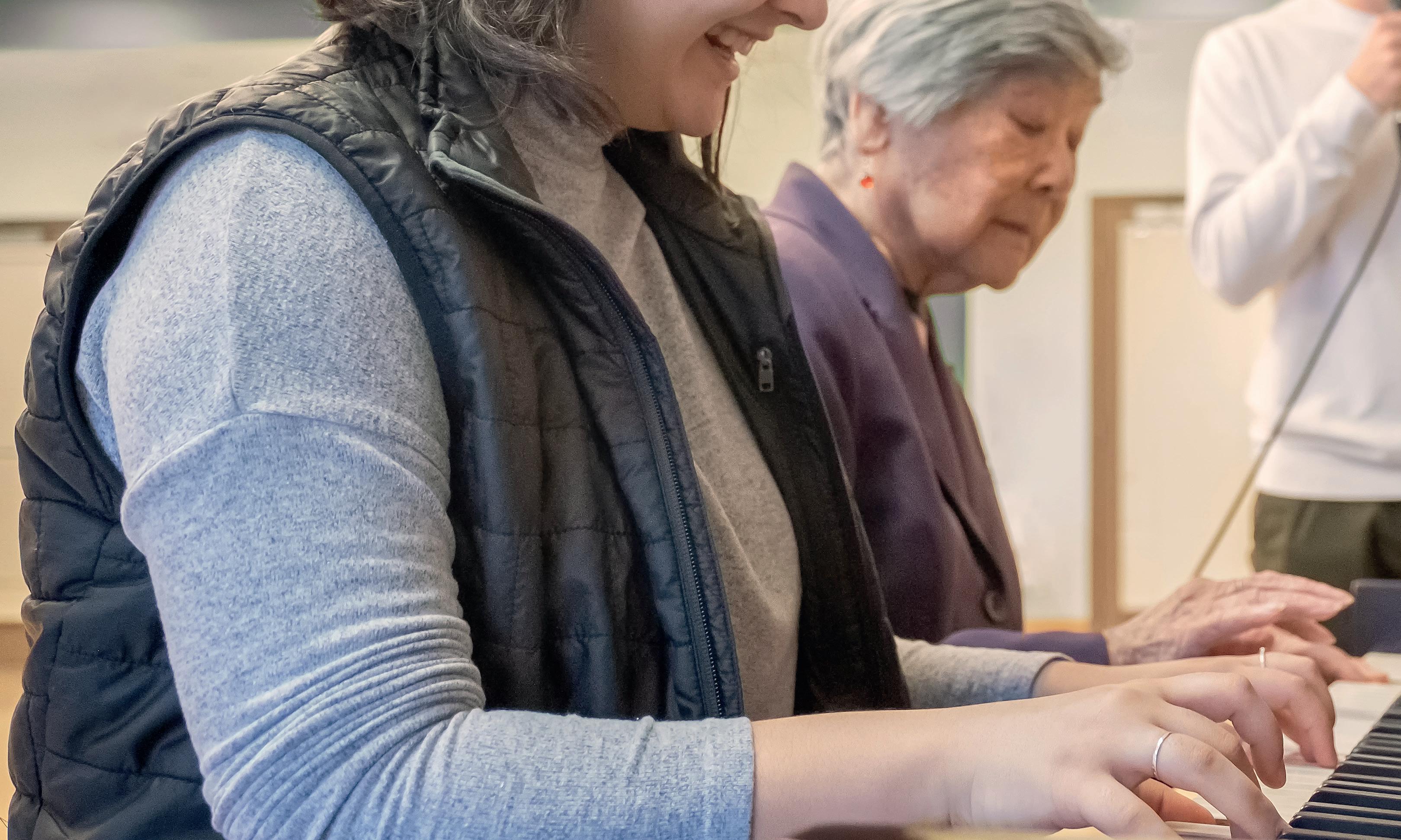
12
“As his wife and carer I could see the difference after each session. I was very pleased when he started to come forward and talk, he is normally quite shy.”
-Digital Aphasia Group Participant’s Wife


Parkinson’s Singing Group 13
Nether Hall Care Home
Nether Hall is a rural, privately owned residential care home, with approximately 40 residents. A proportion of the residents have a diagnosis of dementia or other age-related neurological degenerative diseases. In 2021, Chiltern was commissioned to run a 6 week pilot of a half-day music therapy service. Sessions were client-led with the aim to support improved wellbeing of residents with dementia through increased engagement and participation, communication, orientation and expression through music, using both improvised and familiar music and sounds.
Outcomes Measurement
The validated Music Therapy in Dementia Assessment Scale (MiDAS) was used as a tool to quantify the changes observed in sessions, this uses a Visual Analogue Scale to score 5 categories: Interest, Response, Initiation, Involvement and Enjoyment. Scoring reviews Before (in the first 5 minutes of the session) and During (in the best 5 minutes of the session). Scoring was completed jointly by the Music Therapist and activities co-ordinator.
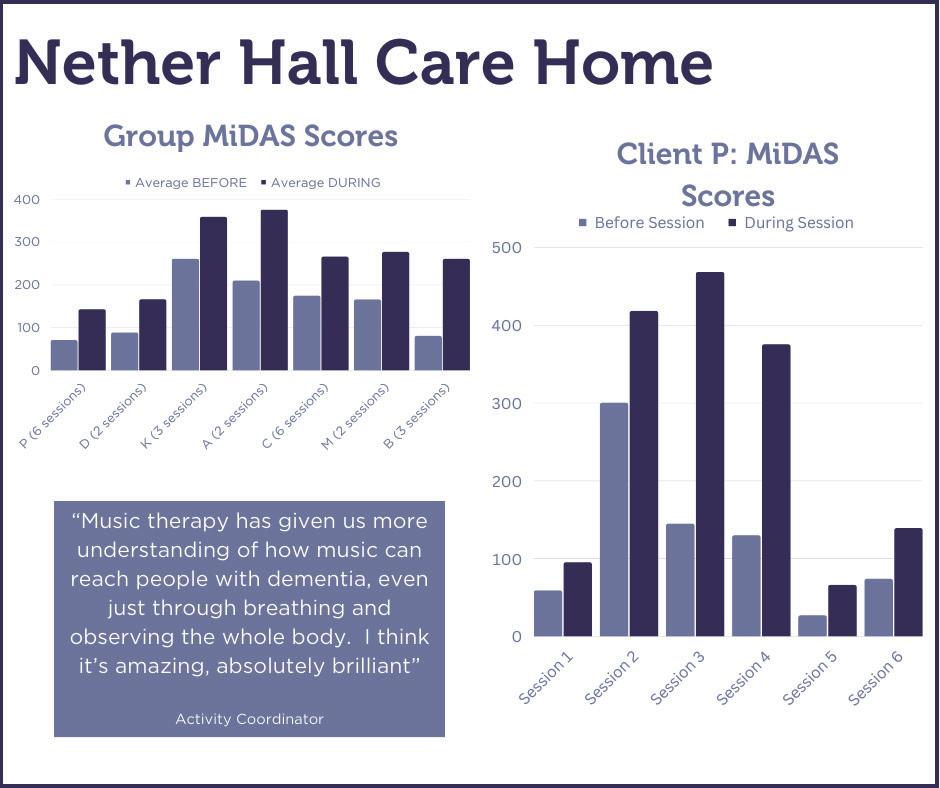
14
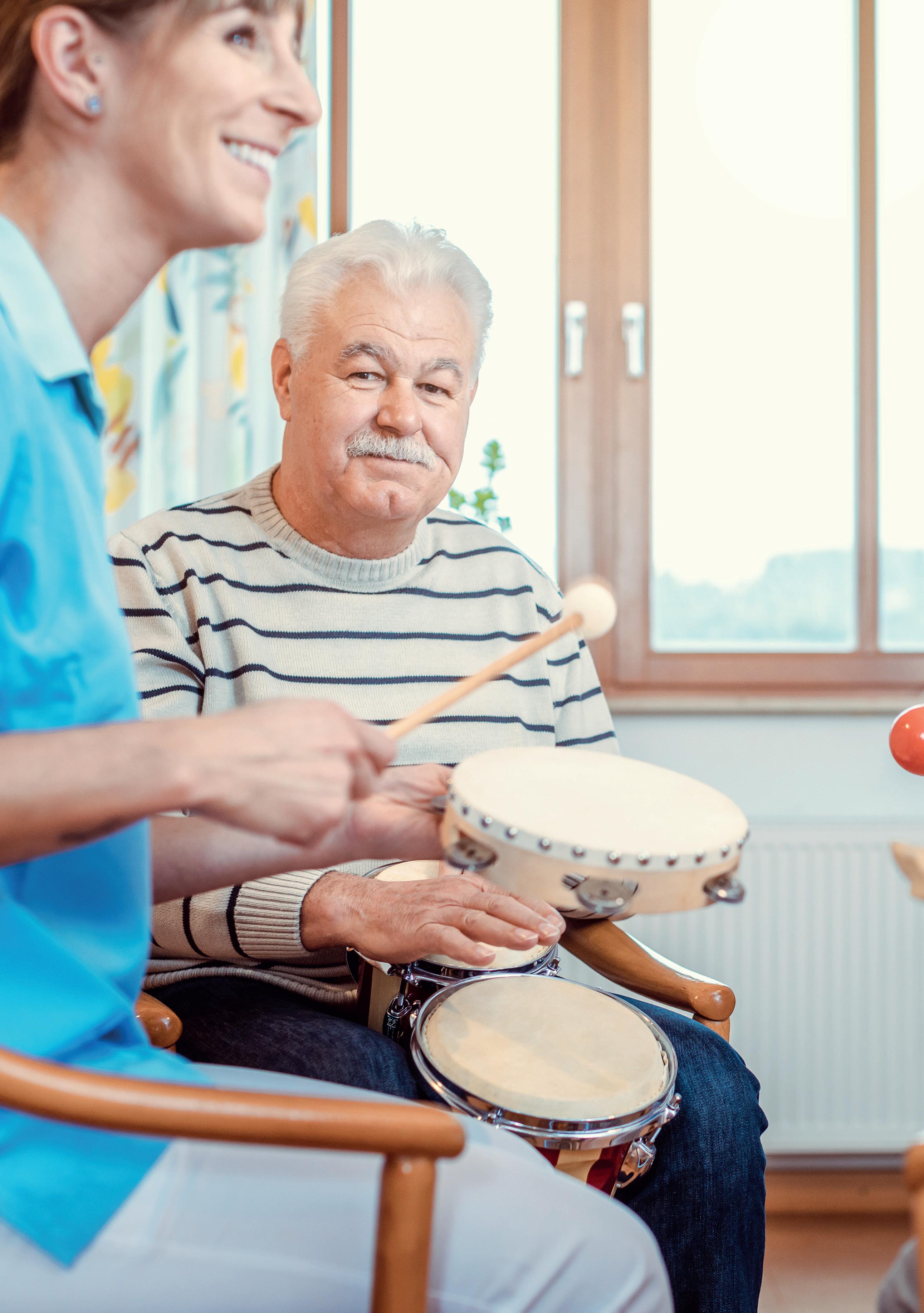
15
Preventative Care
As a longer term programme of care, Preventative Care aims to keep people connected in order to reduce isolation and reliance on health and social care. It might also be referred to as Anticipatory Care.
At Chiltern we run a wide range of community music and music therapy groups for all ages. Our Silver Singers Community Groups provide weekly opportunities to socialise and make music together, and our Let’s Sing online groups support younger adults with learning disabilities to come together to connect through music and have fun.
One of our recent projects, The Changing Voice Group, is a voice work group for transgender and non-binary individuals, funded by the National Lottery. Originally planned as a 12-week pilot, it was extended to 6 months due to the high number of referrals received. Each group member was encouraged to explore their voice through music therapy and to examine what their voice meant to them at various stages of their gender journey. The project received overwhelmingly positive feedback from the participants.


“It’s a more understanding space where I can just ‘be’…I don’t have to be ‘female’, or anything in particular. I can be in the inbetween space.”
16
“I don’t remember a time when I was comfortable with my voice but this group has made me more aware of that - the group has really helped.”
West Sussex Jamming Group
This digital jamming group was run by Music Therapist Natasha Larkin in spring 2021 and supported by a West Sussex Mind support worker. The sessions took place in a very challenging time but offered a vital support space using music.
The group welcomed 11 unique service users to the sessions. At the end of the project, the group expressed how beneficial the weekly jamming group had been to them and how it had helped them to cope with the ongoing isolation and changes during the third UK lockdown.

17
Houghton Regis Singing Café
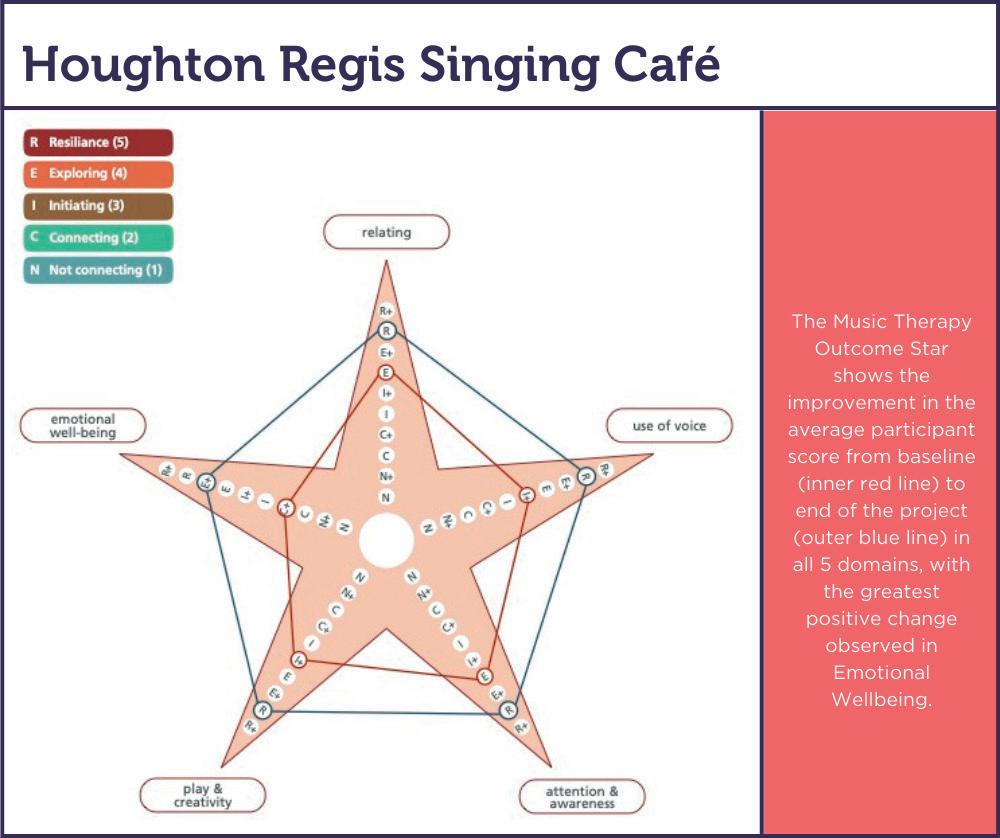
The Houghton Regis Singing Café is a weekly singing group focussed on the wellbeing of older adults who are isolated and those who have a diagnosis of early-mid stages of dementia. Participants are referred into the group by Social Prescribing Link Workers.
Initially planned as an in-person group, the COVID-19 pandemic resulted in the group being delivered predominantly online for 1 year. Weekly sessions were delivered via Zoom by Laura Spencer, our Music Therapist, supported by the Singing Cafe Team from the Community Link Project at Houghton Regis Baptist Church. Social prescribers were also in regular attendance, assisting those who have been prescribed to attend the group.
Due to the Singing Café being held online, some group members were unable to access sessions. For these individuals, a weekly phone call was put in place, providing a half hour weekly music therapy session.
18
The aims of the Singing Café were to:
• Reduce feelings of isolation and bring people together to socialise
• Support communication and facilitate conversation
• Encourage creative expression
• Provide purpose, something to look forward to and improve quality of life
• Improve mental health and wellbeing
• Improve physical wellbeing
• Support group members to reflect on the past, reminisce and consider the future
• Encourage group members to ask for help if they need it
Some of the Results:
• 88% of participants stated it was ‘very beneficial’
• 63% strongly agreed that it made lockdown more manageable
• 69% rated the singing cafe as ‘excellent’
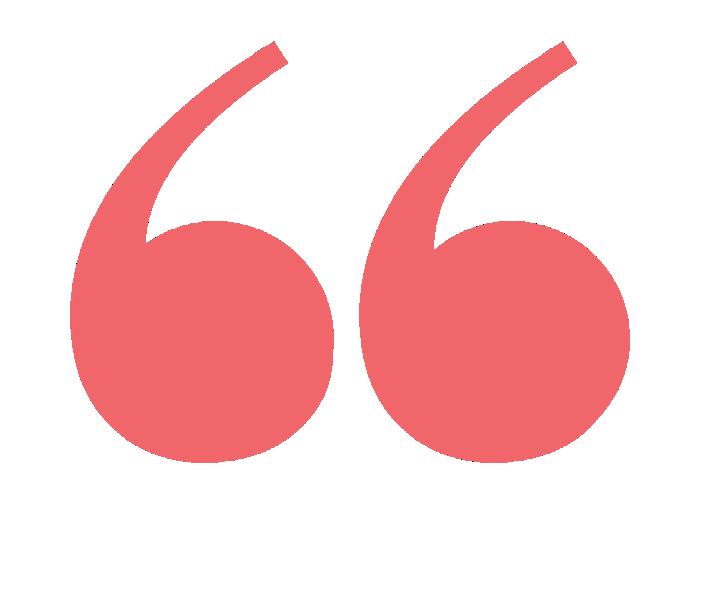
• 14 out of 17 respondents reported that attending the groups enables them to socialise with others and when asked to describe anything they enjoy about the Singing Café, 10 people responded by saying they felt less alone.

19
“I am really surprised at how well she engaged, even initiating dancing when she wasn’t able to follow the words. When I left, she was so full of excitement, she said what a way to start the day, singing and
- Houghton Regis Café Social Prescriber
“It makes me feel happy, and the feeling lasts”
-Houghton Regis Café Participant
Disseminative Care

Our disseminative programme of care is dedicated to sharing, researching, and disseminating our work and expertise to benefit others. It aims to increase the reach and impact of our music therapy services and best practices.
Using Music Tech in Neurologic Music Therapy ®
In 2021, Neurologic Music Therapist James Lea provided a half day a week of therapy sessions utilising the app MindHarp at the Royal Buckinghamshire Hospital in Aylesbury.
4 unique patients were seen with diagnoses that included motor neurone disease, Right Hemiplegic Stroke, Complete Spinal Injury and Acquired Brain Injury for a mixture of 1:1 and group sessions. MindHarp is primarily a unique way to relax and find calm through the power of musical sound. Anyone can play and enjoy MindHarp. By tapping buttons on a simple interface, players can explore a wide range of finely crafted and professionally produced musical sound.
Over the course of the sessions delivered, the MindHarp’s impact on the following clinical domains became apparent: Cognition, Emotional Wellbeing, Communication and Social Interaction, and Motor Skills.
20
“It helped me feel relaxed, I love the Mindharp sessions, I want to use MindHarp when I go
-Royal Bucks Patient using MindHarp
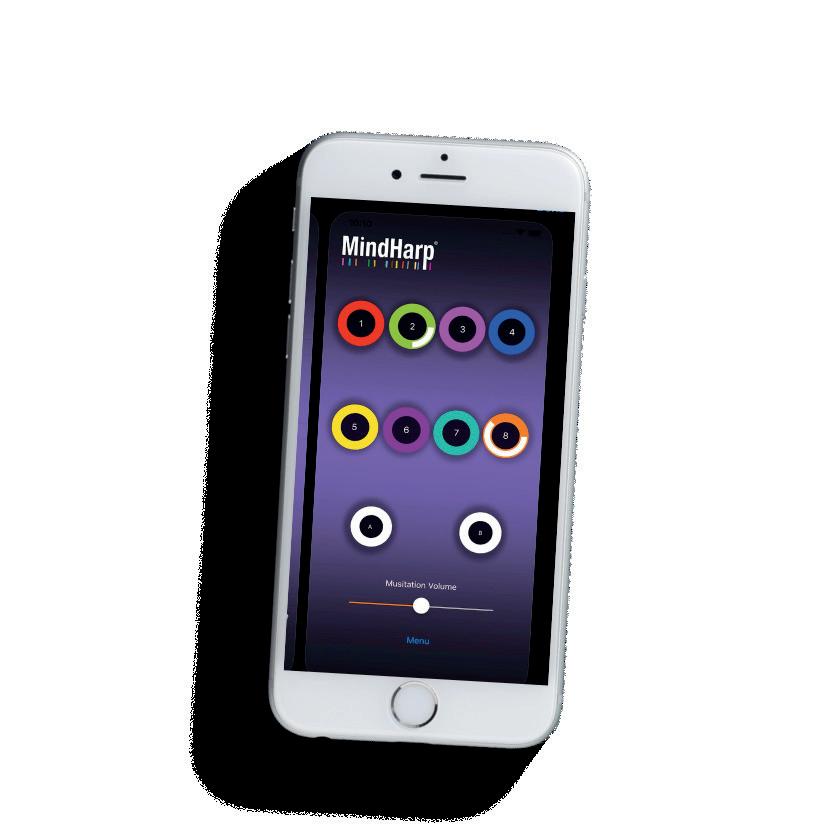


21
DUET Portal
Duet is an innovative digital tool that enables therapists and clients to share resources in a secure, one-stop repository resembling the therapeutic space in a digital manner. Duet allows beneficiaries to access therapy resources in between sessions in a more consistent and flexible way, mitigating isolation and enhancing therapeutic outcomes.
In April 2022 Duet won the UK Advancing Healthcare Awards 2022 under the category “British Association for Music Therapy Award for music therapists who are developing innovative ways of providing effective music therapy in the UK”
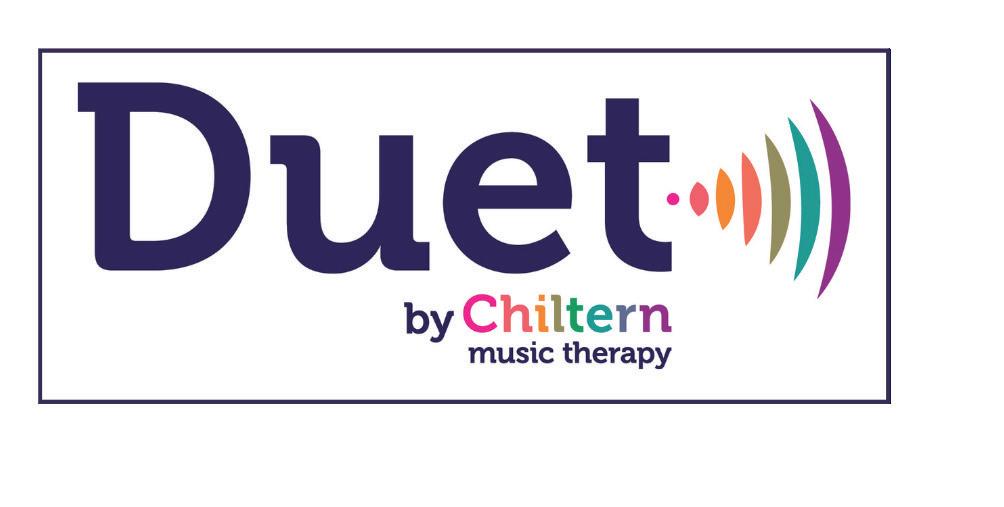
Duet was born from a comparative, qualitative research and development project that took place between June 2020 and December 2021, conducted by Chiltern Music Therapy in collaboration with Cambridge Institute for Music Therapy Research and funded by the Centre for Acceleration of Social Technology and Peter Sowerby Foundation. This study focused on exploring the effects and impact of a multimodal therapy approach combining in-person and digital support and implementing Duet to engage with music therapy services online.
The study demonstrated that although introduced as a response to an emergency situation, digital music therapy could provide added therapeutic value (greater accessibility, consistency and flexibility) and complement in-person services.
Duet Portal was developed based on beneficiaries’ and therapists’ needs and aims to provide more cost-effective and therapeutically beneficial provision than in-person or remote services alone.
said about the portal:

Beneficiaries
22
“It’s beautiful, I love the simplicity and peacefulness - so cool and beautifully designed”, and that it felt “very welcoming, light and positive.”
Where Innovation Meets Evidence: The Cutting Edge of Neurologic Music Therapy ®


In March 2022 Chiltern ran its first Neurologic Music Therapy® Conference in London. The conference was organised by ABI Solutions and sponsored by Team Brain Injury Support. Over 130 people signed up to attend - 60% attended live and others had access to recordings.
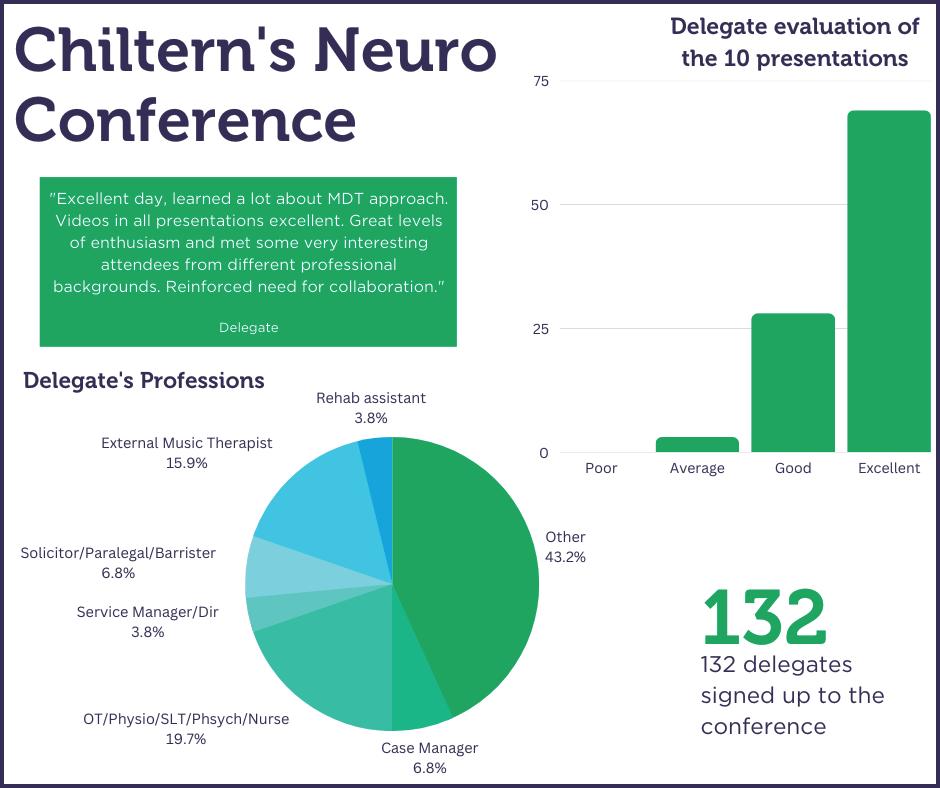
23
“Excellent day, lovely venue! Great selection of speakers - very inspiring.”
-Neuro Conference Delegate
“Brilliant and well worth the money.”
-Neuro Conference Delegate
Training
We are proud to have offered a range of high-quality training courses this year, including training sessions for individuals and organisations. Additionally, we delivered a number of presentations, talks and lectures to students, community groups, MDTs, teachers, neurorehab units and case managers.


24
“Excellent trainer, great to hear about challenges of autism from an autistic person, very thought provoking.”
- Autism Awareness Training

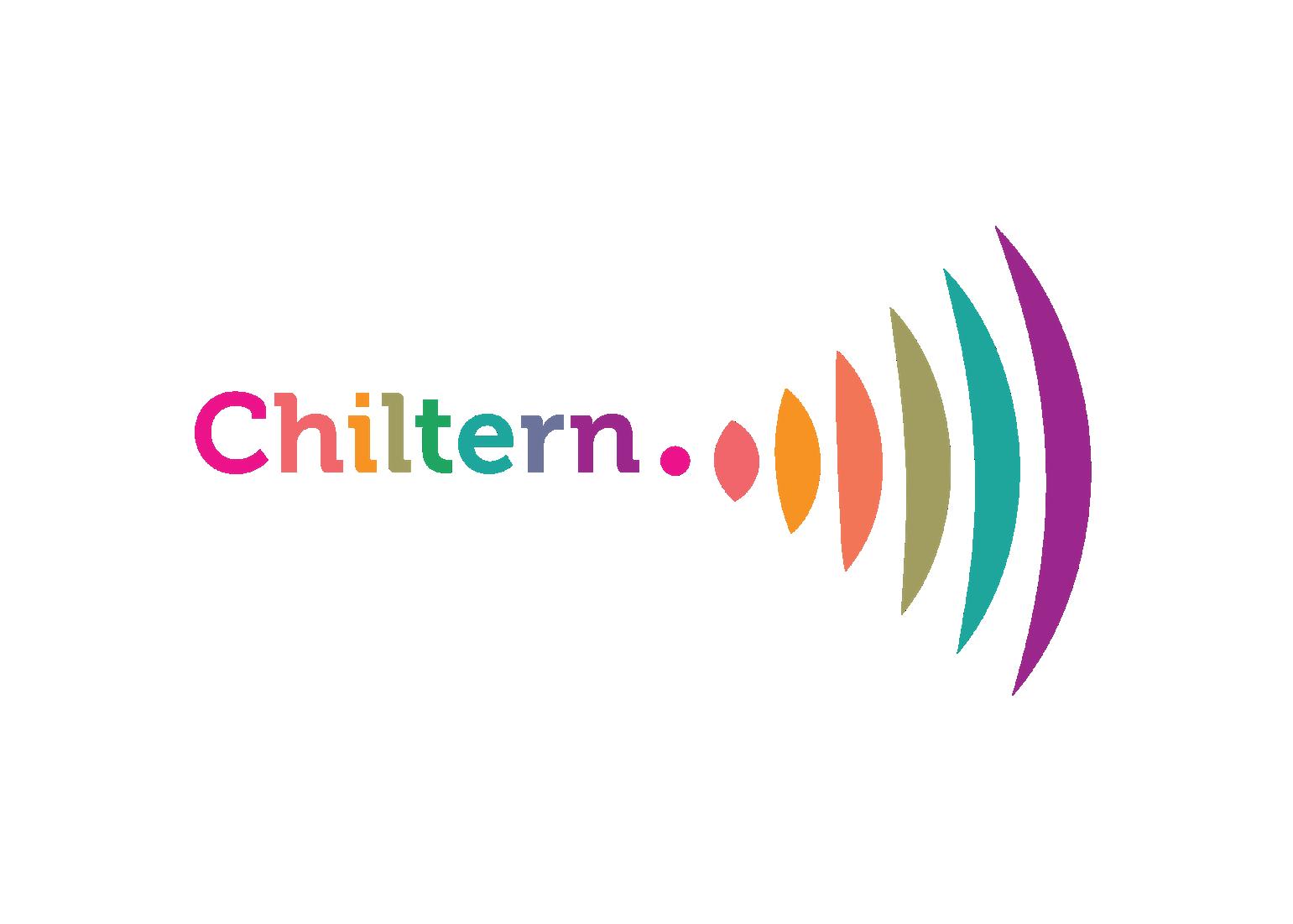
26 Chiltern Music Therapy, Suite A, Irfon House, Stones Courtyard, High Street, Chesham, Bucks, HP5 1DE Tel: 01442 780541 Email: info@chilternmusictherapy.co.uk Web: www.chilternmusictherapy.co.uk





























